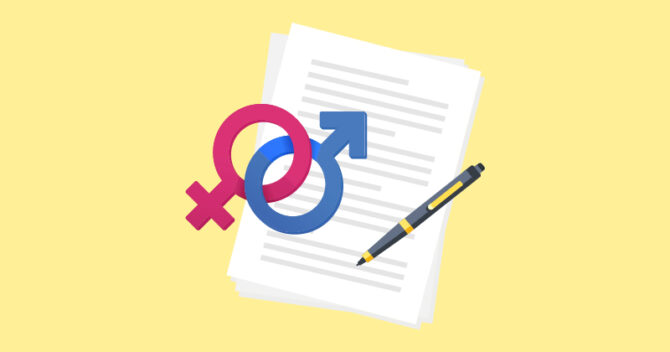Collecting data on sex and gender separately is important for tackling inequalities, writes Sarah Hope
Suppose you’re asked to get involved in a project with your students? It champions a marginalised group – you’re keen.
However, there’s a catch. One or two students can’t be recorded correctly. Key information won’t be accurate.
Accurate data is important. FE providers use statistical information to measure everything, from recruitment to achievement. Precision is important, and I would say that means collecting data on both sex and gender.
A recurring difficulty for colleges such as the one I used to work with is the conflation of these terms. FE providers then also face the issue of deeply upsetting their students, whether trans students or non-binary students, when the college wishes to separate the two terms for the purposes of data collection.
Here’s the problem facing colleges: the Office for National Statistics states that ‘sex’ is the biological self, anatomy, chromosomes, and so on.
‘Gender’ is ‘personal, internal perception of oneself’ that may not match natal sex.
It’s not uncommon for the two to be confused. Perhaps even check the internal records of your own provider, and you can see the muddle.
Does this matter?
Let’s look at STEM subjects: science, technology, engineering and mathematics. FE providers have always been at the forefront of initiatives aimed at getting girls into STEM careers, with programmes of visiting mentors and trips to university departments.
However, there’s still a lot to do. According to the group Women in STEM, just 26 per cent of the STEM workforce is female.
In the future, similar projects may include students recently identified into womanhood. This will skew those figures.
It isn’t just a girl issue, though. Boys’ attainment has been a concern throughout the education system. In 2020, boys were seven per cent behind girls at GCSE grade 4 and higher, with those on free school meal data especially at risk.
There’s a lot of work needed to overcome the effects of poverty and family expectation.

So FE providers need to be able to collect both sex and gender information, so that they have as rich and informative a dataset as possible. It will allow them to tackle these kinds of inequalities, many of which start pre-school.
Importantly, this wider dataset would also highlight where trans students are particularly struggling as a group, by identifying which students are trans too.
Another instance is the gender pay gap among staff. Employers, including colleges, are required to report their pay gap and yet there is no clear guidance on how to record sex differences.
Many colleges have pay gaps on a par with the national average of 14 per cent, significant in a sector with a higher percentage of men in better-paid roles.
Should the EFSA follow the Higher Education Statistics Agency approach to data?
HESA uses two data headings, sex and gender, but under ‘sex’ there is a non-binary ‘other’ option, thereby potentially removing students from any sex-based analysis. Or would this have an unintended impact on data around existing sex inequalities?
Perhaps a proposal to register sex as the core demographic and add personal identities as a separate field is a better answer.
However, by following this approach, colleges risk upsetting trans and non-binary students, who can face significant persecution within society and need to feel welcomed and accepted in college life.
So, if my experiences are anything to go by, some FE providers feel confused as to how best to proceed.
I would argue for a distinction between sex and gender, explaining to trans or non-binary students that this is done in the spirit of helping identify challenges for all groups, including themselves.
But the solution should be clearer guidance from the government, rather than leaving it to providers to muddle through.
Editorial note 10/01/2022 – A reference to a campaign group was removed from this article after editors were made aware of transphobic speech linked to the campaign group.
Author name has been changed. Image is a stock image and not of the author








